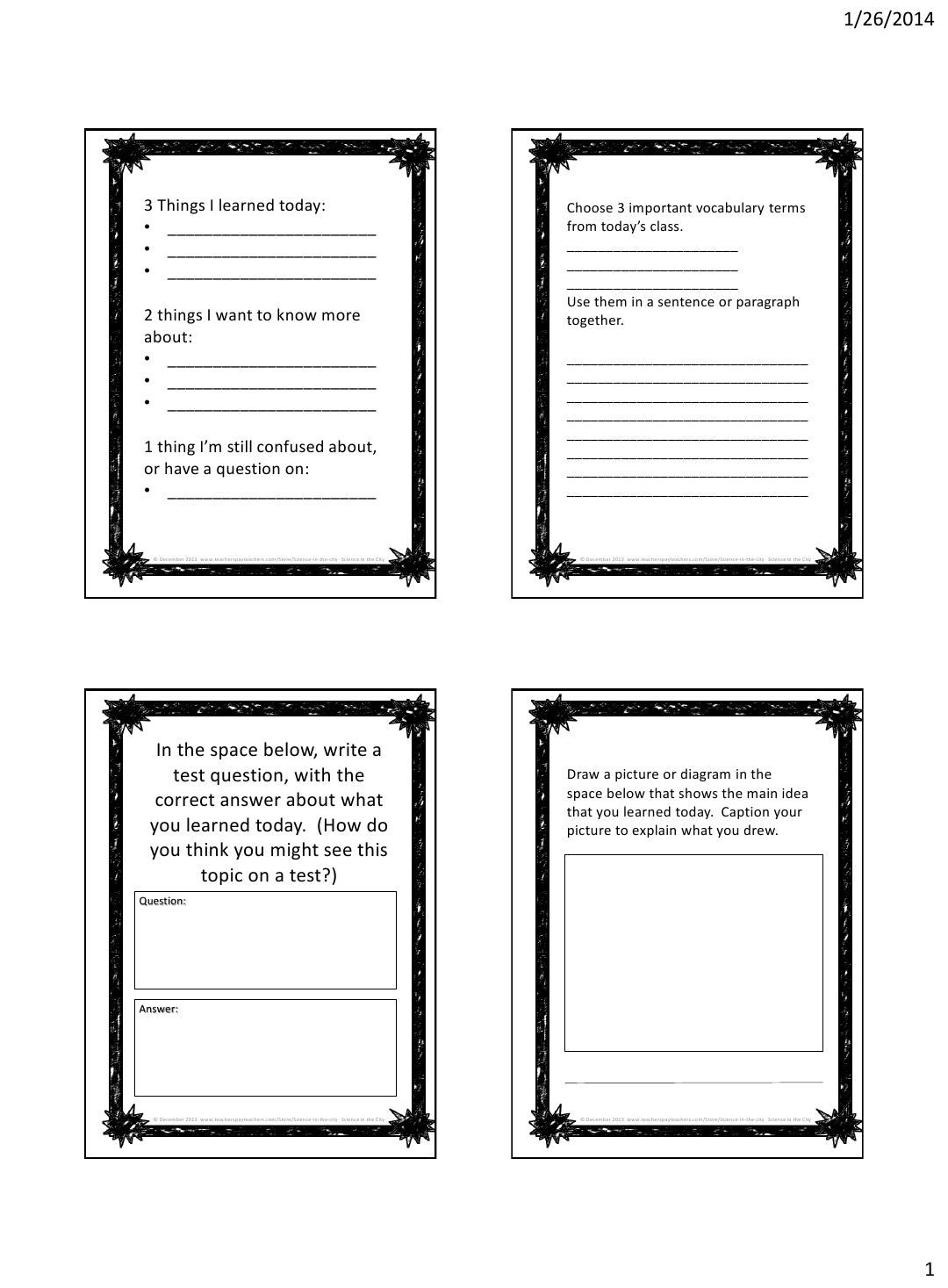Free Exit Tickets for Formative Assessment
As we approach the new school year, many of us think about what goals we want to set for the upcoming school year, or what we want to change in our classroom. For many of us, we want to get a handle on what our students really understand. We need to use assessment more thoughtfully It is too easy to get 'stuck' in the routine of teaching a lesson, assigning homework, but not taking the time to get feedback from students, on their understanding, or have students think about their own learning. Here is a free and easy way to assess your student's understanding.When and how to use them
One practice that I really believe in, and try to use consistently is formative assessment. These may often be seen in the form of 'exit tickets,' but can also be integrated into the lesson as part of a transition, or closure to a topic. It is really important to have students reflect on their own learning, and to get a 'pulse' of the class frequently, and long before a unit test. By then it is really too late.In many cases administrators are looking for closure and student reflection when they observe your class. Exit tickets or formative assessment are a great way to do that.
Download your freebie
Below is a four pack freebie of four exit tickets that I frequently use in my classroom. They are downloadable as a pdf file, and print four to a page. They are set to print four to a page. Here isthe link
. Enjoy!

These can be used to assess and determine if re-teaching is necessary for a small group, or for the larger group. They can also be a critical time for students to reflect on their own learning, and to think about what they understand or don't understand.
Related resources
These are a sample of a larger pack of 50 (!) Exit tickets. The four in the sampler are general use (any subject) and could be widely used.The complete pack of 50 Exit Tickets include these, and other general exit tickets, but also have an emphasis on science, so they include many general prompts (40 of the 50), but some prompts that are specific to science classes.
Another free resource!!
For a free guide to quick and easy assessment, as well as a set of free introductory science task cards/bell ringers, click here.
I hope this really helps you and your students know what they understand.







































